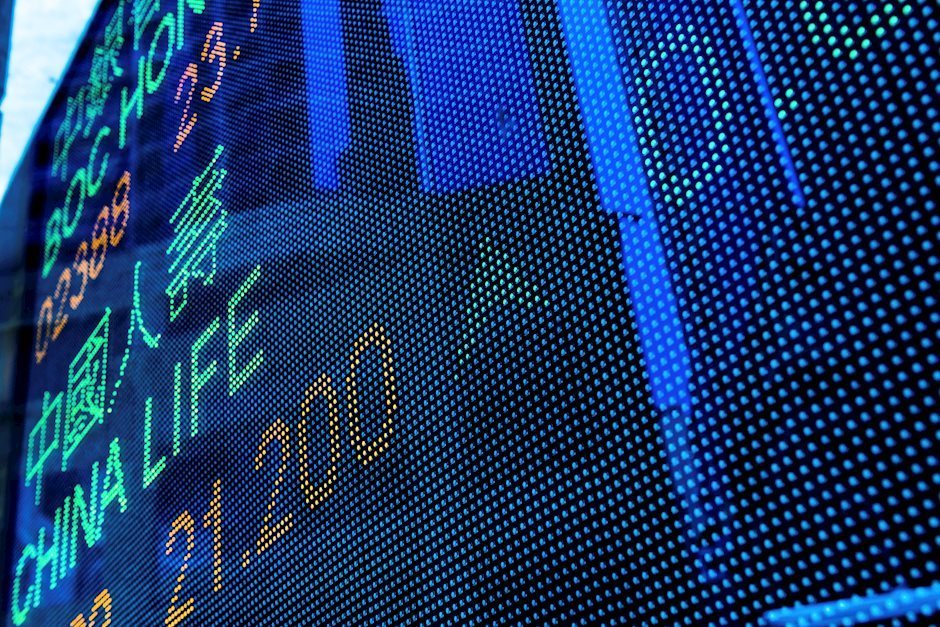China: Four key questions on 20th National Congress of the CPC
-
China’s 20th National Congress of the Communist Party of China (CPC) kicks off on Sunday 16 October. Below we look at some key questions that will be in focus.
-
A key focus will be if the CPC will signal a coming change in the zero-Covid policy. We would not get our hopes too high.
-
Xi Jinping is set to get another 5-year term and we expect that he will cement his power, at a time when China is facing many challenges both domestically and abroad.
-
We expect a lot of continuity in the policy blueprint and expect few changes. A key part of China’s policy now is self-reliance and developing secure supply chains less dependent on the West.
-
With few new policy signals expected, the Congress should have a limited impact on financial markets.

On Sunday, President Xi Jinping will kick off the 20th National Congress of the CPC by reading out the Work Report, which is a blueprint of 60-70 pages on China’s policies and plans for the next five years. During the Congress, which normally lasts around a week, the meetings are mostly behind closed doors. On the first day after the Congress has ended, China’s new top leadership in the CPC - the Standing Committee of the Politburo - is presented.
Below we look at four key questions to keep an eye on:
1: Will there be a change in the zero-Covid policy?
Until a week ago, we would say it was 50-50. But this week new articles in People’s Daily, China’s main state newspaper, indicated that we should not get our hopes too high for a change in the dynamic zero-Covid policy. A commentary yesterday in People’s Daily called for “patience in the current epidemic and control policies”. It follows an article in the same paper on 5 October saying “Recently, some people have seen that some foreign countries have chosen to "lie flat" in the face of the epidemic, and believe that our country's insistence on dynamic zero-Covid is too costly and should follow suit to achieve coexistence with the virus. This is an extremely wrong and irresponsible view. The Omicron variant is by no means a "big flu", and its spread is fast. For vulnerable groups, especially the elderly with underlying diseases, the severe and fatal rates are still high. Therefore, we must stick to our own path, and persistently do a good job in epidemic prevention and control”.
It seems that China is still not seeing the economic cost as outweighing the health cost in terms of expected deaths among its’ older population. New variants of Omicron have also shown up that are even more contagious and better at evading the immune system, which also points to China waiting. Our baseline is that the dynamic zero-Covid policy will be abandoned in Q2 next year, but it is a highly uncertain projection that will also depend on how the virus develops over the winter, with possibly new variants developing. For an overview of China’s arguments for the zero-Covid policy, see this press release from July called Dynamic zero-Covid: a MUST for China.
2: How will political power be divided?
The Congress is always studied closely to see how power is divided between different factions or more centralized around the President. Last time, the seven members of the Standing Committee represented a broad range of factions, but the Politburo consisting of 25 members (that include the Standing Committee) had a strong tilt to Xi allies. China has an informal rule of retirement in the Politburo at 68 (except for Xi Jinping who is 69), which means there will be people leaving and replaced by younger members.
Some political focus points will be:
What titles will Xi get? If he is named ‘Peoples Leader’ or the ‘Helmsman’ or Chairman of CPC, it would elevate him to a higher status and cement his power in the Party even further.
Will there be a successor? While the removal of the two-term limit has paved the way for Xi to be President and General Secretary for life, it is not written in stone. It is a possibility that he could step down after the next term in five years, but if so a successor would be designated already at this Congress. One name that has been mentioned is Hu Chunhua, currently member of the Politburo and front-runner to become new Premier when Li Keqiang steps down (there is still a two-term limit on this post).
Will we see reformers in the Standing Committee or not? Some factions are more reform minded than others, so who gets elected also sends a signal on the road ahead in terms of the path of market vs. state. China’s economic czar Liu He will step down and focus will be on who takes over from him.
We believe that Xi Jinping will cement his power as China faces a lot of headwinds both externally and internally. From China’s point of view, this raises the need for strong leadership and a signal of unity. Last time the “Xi Jinping Thought on Socialism with Chinese Characteristics for a new Era” was put forward in the Work Report and written into the Constitution alongside contributions from Mao Zedong and Deng Xiaoping. If it is shortened to just “Xi Jinping Thought” it would be seen as a signal of elevating his status further, as it would be more in line with the designation of Mao’s contribution, which is called “Mao Zedong Thought” and Deng Xiaoping’s contribution named “Deng Xiaoping Theory”.
3: What economic policy signals are we going to see?
The Work Report will outline China’s economic priorities and policies to achieve the goals. Given that Xi Jinping has been leading China for ten years now and outlined the key economic policies, it is doubtful there will be a lot of change. Last time the sections on the economy highlighted 1) furthering supply side reforms, 2) making a country of innovators, 3) improving the property rights system, 4) ensuring fair and orderly competition, 5) a decisive role for the market in resource allocation and more effective market mechanism, 6) strengthening the state sector as well as supporting the private sector, 7) further climb the value chain in manufacturing, 8) open up further, and 9) strengthen green development. These points are unlikely to change.
However, since the Congress five years ago, Xi Jinping has emphasized self-reliance even more, as China faces significant headwinds on technology from US export restrictions. The latter was tightened much further last week, underlining China’s need for more self-reliance in this area and investments. Food and energy security is also high on the agenda. Self-reliance is also part of the ‘dual circulation’ policy and China’s ‘New Development Philosophy’ outlined a few years back.
The Common Prosperity goal was actually already mentioned five years ago, but got a lot more attention in recent years by Western commentators and media. It will likely be repeated, as China stresses the goal of making everyone prosperous and reduce inequality to secure social cohesion.
4: Will it matter for financial markets?
As we do not expect major changes in China’s policy guidelines, we doubt there will be much impact on financial markets. If Xi underlines that zero-Covid policy is here to stay, it could have a negative impact on Chinese stocks, though. Of course, any signal of an easing of the policy would be positive, but as mentioned, we see a quite small chance of this.
Author

Danske Research Team
Danske Bank A/S
Research is part of Danske Bank Markets and operate as Danske Bank's research department. The department monitors financial markets and economic trends of relevance to Danske Bank Markets and its clients.

















